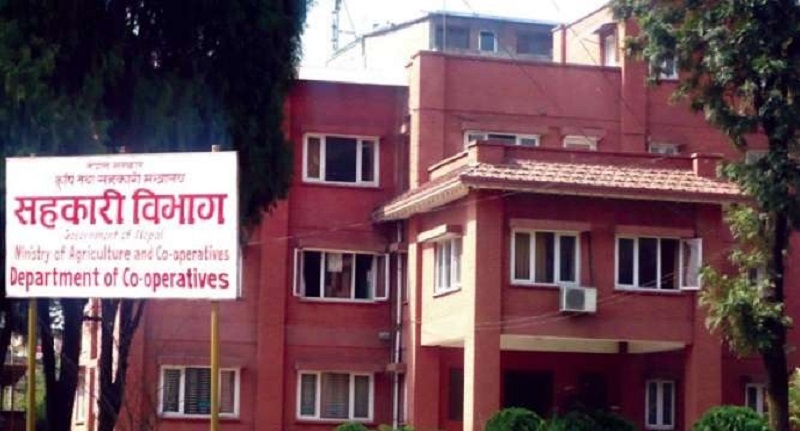Cooperatives Required to Join Government’s Anti-Money Laundering System
8th August 2023, Kathmandu
Department of Cooperatives Mandates Participation in Government’s Anti-Money Laundering System
Cooperative Sector Takes a Leap towards Financial Transparency: Joining the goAML System for Enhanced Anti-Money Laundering Compliance
Money Laundering Prevention Act 2064 and its accompanying regulations, the Department of Cooperatives has rolled out a groundbreaking initiative targeted at cooperative associations and entities engaged in the realm of savings and loans.
This groundbreaking directive mandates the integration of these cooperatives into the Government’s GoML system, a cutting-edge platform designed to vigilantly monitor and report financial activities, thereby ensuring strict adherence to anti-money laundering regulations.
The goAML System: Unveiling a Revolutionary Paradigm
The Government’s GoAML system, succinctly denoting “Government’s Anti-Money Laundering System,” has emerged as the epicenter for tracking financial transactions and unearthing potential money laundering endeavors.
Functioning as a potent tool in the arsenal of regulatory authorities, this system plays a pivotal role in surveilling financial operations, effectively thwarting any illicit financial undertakings within the expansive cooperative sector.
Mandatory Integration for Robust Anti-Money Laundering Regime
The clarion call for cooperative associations and establishments engrossed in the intricate domain of savings and loans is clear and unambiguous: participation in the GoAML system is mandatory.
It is incumbent upon cooperatives with deposits or capital surmounting 100 million rupees to seamlessly align themselves with this system.
The prime objective is to ensure meticulous monitoring of larger cooperatives, entities that oversee substantial financial transactions, thereby preemptively obliterating the potential for money laundering activities to take root.
Directives for Unwavering Compliance
In response to any hesitance displayed by cooperatives in engaging with the GoAML system, the Department of Cooperatives has adopted a firm and unwavering stance.
This stance is embodied in a series of directives expressly designed to compel active participation. The ultimate goal is to expedite the integration process, thereby catalyzing financial transparency and forestalling any untoward misuse of funds.
Navigating the Path to Integration
For cooperatives boasting turnovers surpassing 100 million rupees, adherence to a meticulous step-by-step process is imperative for seamless integration into the GoAML system:
Registration:
Affected cooperatives must initiate their journey by registering within both the controlled environment and the live environment of the GoML system. This registration protocol necessitates the submission of the requisite information to the financial information unit housed within the central bank.
Reporting:
Subsequent to successful registration, cooperatives shoulder the obligation of reporting specific financial activities to the GoML system. This encompasses the submission of transaction reports pertaining to border crossings, reports spotlighting suspicious transactions, and disclosures related to any activities that arouse suspicion.
Transmission Channels:
Cooperatives are granted the flexibility to channel their reports via the system’s user-friendly web-based interface or opt for the XML format, thereby ensuring seamless and efficient data transmission to the GoML system.
Fostering a Culture of Compliance: The Multi-faceted Benefits
Regulatory Adherence:
Cooperative entities that wholeheartedly embrace the GoAML system underscore their unequivocal commitment to eradicating money laundering and unwaveringly complying with the gamut of pertinent regulations.
Elevated Reputation:
Actively participating in the concerted fight against money laundering bestows an aura of enhanced credibility and trustworthiness upon cooperatives. This, in turn, bolsters their reputation within the cooperative ecosystem.
Early Detection Vigilance:
Armed with the potent monitoring capabilities of the GoAML system, cooperatives are empowered to nimbly detect and nip suspicious activities in the bud, thereby circumventing the risks synonymous with illicit financial transactions.
Holistic Financial Security:
Enlisting within the GoML system engenders a palpable elevation in the overall financial security quotient for cooperatives. This proactive step safeguards them from the potential legal and financial ramifications stemming from non-compliance.
Conclusion
The integration of the cooperative sector into the GoAML system marks a resounding triumph in the ongoing battle against money laundering and the steadfast fostering of financial transparency.
Through unswerving compliance with the Department of Cooperatives’ directives and their proactive alignment with the GoAML system, savings, and loan cooperatives herald their unwavering dedication to responsible financial conduct.
This momentous stride not only serves as a bedrock for regulatory conformity but also erects a robust bulwark that safeguards the integrity, reputation and holistic stability of the cooperative sector.







